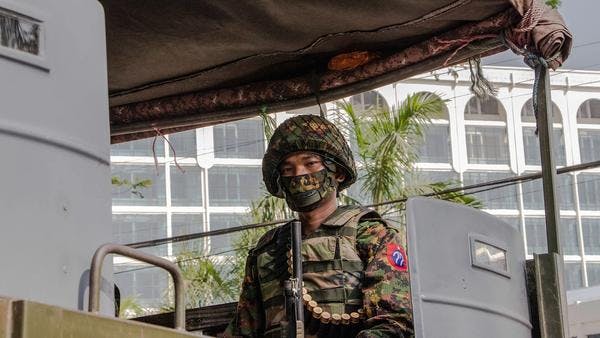Santosh Krl / SOPA Images/Sipa U via Reuters Connect
Aporte de la ONU al problema de la droga en Birmania
Un enfoque excesivo sobre cambios en el tamaño del mercado, basado en datos cuidadosamente seleccionados por funcionarios del gobierno, encubre acciones punitivas en el terreno. Más información, en inglés, está disponible abajo.
By Bertil Lintner, Irrawaddy
A recent string of drug busts in Southeast Asia — 55 million methamphetamine pills and 1.5 tonnes of crystal meth in Laos in October, and this year at least a billion pills, 6 tonnes of heroin and 4.4 tonnes of crystal meth — have led some international agencies to conclude that the production of illicit narcotics in the region is booming. The reason, Jeremy Douglas from the United Nations Office on Drugs and Crime (UNODC) in Bangkok told Reuters as far back as Oct. 28, is “the breakdown” of “security and governance” in Myanmar’s Shan State following the coup a year ago. Then, on Dec. 12, the Australian Broadcasting Corporation quoted Douglas as saying that “right now, the [Myanmar] police are fighting an insurgency or dealing with ethnic unrest, so they have other issues on their mind, and there is free space for others [drug smugglers] to do their business.” More recently, on Feb. 1, Douglas told Reuters: “Meth production increased last year from already extreme levels in northern Myanmar and there is no sign it will slow down.”
Critics, however, see the problem in a completely different light. Apart from being disconcerted by Douglas’ offensive choice of words — “other issues on their mind” can only be interpreted as a reference to the police gunning down peaceful demonstrators — they are pointing out that there can be many reasons for the increase in drug busts, and that it does not necessarily mean that production is skyrocketing. The Transnational Institute (TNI), a Netherlands-based research and advocacy organization, stated in a report published in December: “Sweeping assertions that Myanmar has become one of the world’s largest ATS [Amphetamine-Type Stimulants] producers — if not the largest — and reports about sudden huge increases in production should…be treated with great caution. It is important to note that increases in seizures could be because of other reasons, and these do not automatically mean that there is an increased equivalent in production.”
Regiones
Perfiles relacionados
- Transnational Institute (TNI)
- United Nations Office on Drugs and Crime (UNODC)
